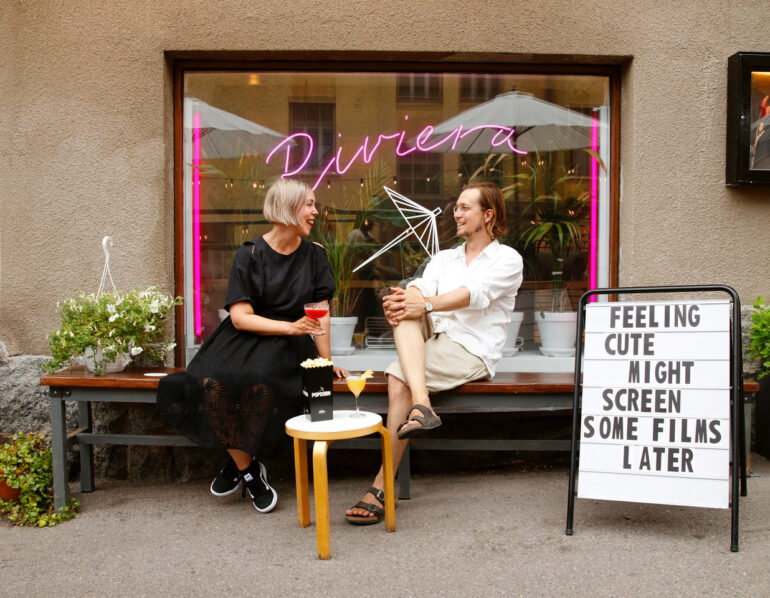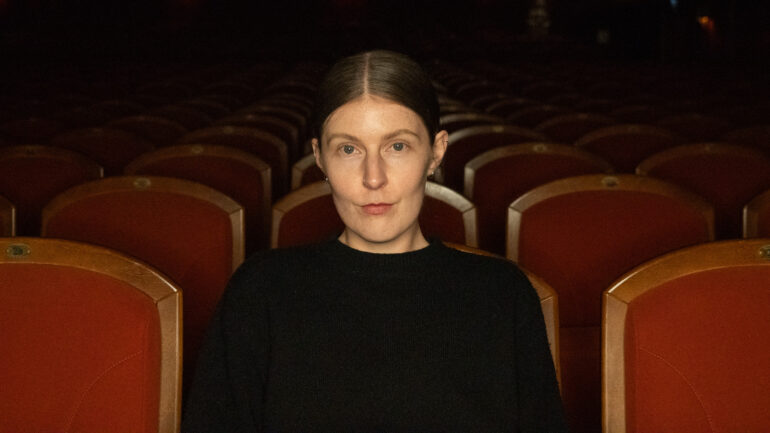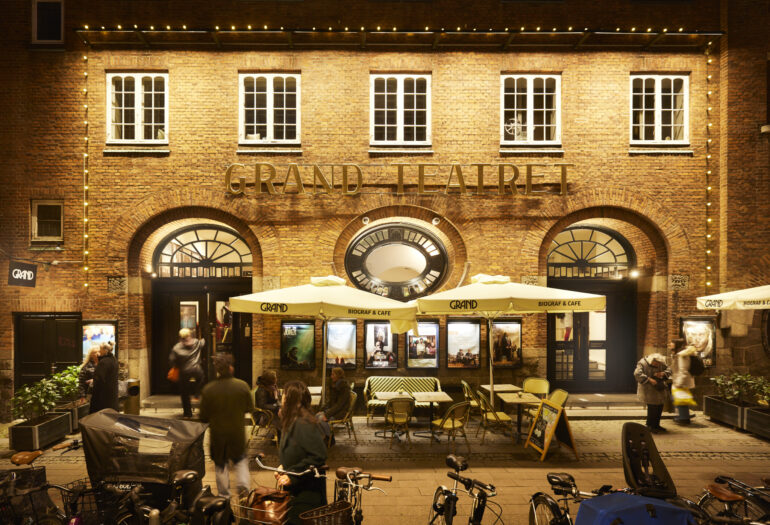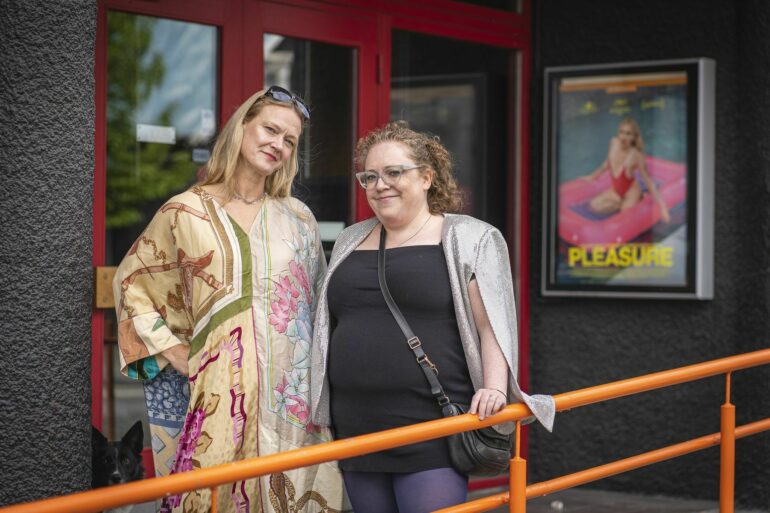Written by: Davide Abbatescianni
11.02.25
Combining passion and financial security: Nordisk Film & TV Fond spoke with players from all Nordic countries to unpack the business models, audience engagement strategies, and future prospects of theatres.
In 2024, the Nordic film markets displayed mixed trends. Finland witnessed a decline in cinema admissions, despite the success of its domestic productions. Both Norway and Iceland experienced a downturn, particularly in international film viewership, while local films flourished. Meanwhile, Denmark and Sweden maintained stability, with a notable surge in the popularity of homegrown cinema across the region.
To take stock of the current state of the arthouse exhibition sector, NFTVF spoke to six arthouse theatres of different sizes. Our discussions covered their acquisition policies, business models, successful Nordic and international titles, potential collaborations with VoD platforms, ticket pricing strategies, and various strategies for engaging and attracting audiences.
While the analysis does not claim to be exhaustive, it is interesting to examine in detail some of the strategies implemented by these players to withstand this period of economic uncertainty.
A record year for Malmö’s Panora, a brand-new business in Stockholm
Louise Nassiri, from Malmö-based cinema Panora, explains that their regular repertoire focuses on arthouse films available through Swedish distribution, with some larger genre titles for diversity. They also offer special screenings, themed series, school screenings, and host a yearly Queer Film Festival. Their children’s programme, Juniora, includes weekend and holiday screenings, alongside SMUFF, a festival for young cinephiles. She highlights 2024 as a record-breaking year, with growing revenues and audience numbers, noting that arthouse cinemas seem to be outperforming multiplexes. While youth-oriented films remain a challenge, larger arthouse titles and local docs, such as The Unmeasurable (Det omätbara), have done well. Nordic films are a staple, with key partnerships such as those sealed with Ny finsk film and the Nordisk Panorama Film Festival. Nassiri observes that Swedes are less inclined to watch domestic films compared to their Nordic neighbours, a trend unlikely to improve under the current government. Moreover, rising costs led to a 10 SEK ticket price increase, and the country’s high VAT rate on cinema tickets (25%) remains a major concern.
Meanwhile, Liv Larsson of Bio Skandia in Stockholm shared that the cinema screens a mix of “small” and “broader” quality titles, with at least 60% of their films classified as complementary cinema, namely, non-mainstream titles that may otherwise have limited distribution. So far, blockbusters such as Dune: Part Two, have been the most successful, with a Q&A session with Stellan Skarsgård boosting great interest. Larsson also highlighted Nordic films like The Last Journey(Den sista resan), Paradise is Burning (Paradiset brinner), and Handling the Undead (Håndtering av udøde), noting how Q&As enhance both audience engagement and promotion.
Helsinki’s Riviera thriving on high-quality drama amid economic uncertainty
Distributors Hanna Hynynen and Atte Laurila, of Riviera, describe their two Helsinki-based cinemas as “curated escapes, offering carefully selected new releases alongside classics and special screenings”. Unlike venues that focus solely on arthouse or blockbusters, Riviera prioritises films with unique appeal that spark discussion. They report a strong start to 2024 with hits like Poor Things, Past Lives, and Dune: Part Two, though summer was quieter compared to last year’s Barbie surge. While high-quality drama remains their core success, horror, action, and sci-fi perform less reliably. Domestic Finnish films, such as Fallen Leaves (Kuolleet lehdet) and Stormskerry Maja (Stormskärs Maja), tend to outperform other Nordic titles, though hits like Another Round (Druk) and The Worst Person in the World (Verdens verste menneske) have found an audience in the past. Economic pressures have slightly impacted weekday attendance, but Riviera has kept ticket prices stable, viewing cinema as an “affordable everyday luxury”. The team is also exploring new distribution models, exemplified by their limited theatrical run of Steve McQueen’s Blitz before its streaming debut on Apple TV+.
Balancing passion and profit in Denmark
Kim Foss, of Copenhagen’s Camera Film and Grand Teatret, emphasises a balance between passion and financial security in acquisitions, citing a Finnish colleague’s advice: “If you cry, then buy.” While arthouse films outperform multiplex offerings, attendance remains uneven, with only a few titles achieving strong results. Foss notes Christian Petzold’s films struggle commercially despite critical acclaim, whereas titles like Perfect Days resonate widely. He also highlights the impact of marketing choices, recalling how renaming Alcarràs to The Olive Orchard in Catalonia boosted its appeal. Nordic films receive no special treatment, though recent strong Norwegian releases led to a dedicated mini-festival. Foss recalls struggling with Dag Johan Haugerud’s Sex, Love, Dreams (Sex, Kjærlighet, Drømmer) trilogy until incorporating all three themes into each film’s title, a move that improved audience response. The trilogy’s first instalment performed well, and expectations are high for the next two. Despite economic challenges, Camera Film has maintained stable ticket prices, viewing discounting as unsustainable. Foss believes distribution and exhibition should go hand in hand, ensuring synergy while maintaining fairness.
Domestic titles on the rise, growing competition from outdoor leisure activities in Lillehammer
Clarissa Bergh from Lillehammer Kino defined 2024 as a challenging year, but expressed hope for better results in 2025. Local and international films, particularly those with historical and family-oriented themes, have proven successful, including Inside Out 2, Norwegian war film Nr. 24, and local children’s film Bukkene Bruse på Badeland. Domestic titles like Loveable (Elskling), Three Men and Vilma (Tre menn til Vilma), and Ibelin also saw significant success. For Norwegian films, Lillehammer Kino leverages access to production teams for curated screenings, enhancing audience engagement. When comparing Norwegian audiences to other Nordic countries, Bergh suggested that “Norwegian cinemas face more competition from outdoor leisure activities”. Regarding ticket pricing, Bergh admits that Lillehammer Kino is exploring dynamic pricing in response to growing economic challenges.
One of a kind: Reykjavík’s Bíó Paradís
Bíó Paradís, Iceland’s only arthouse cinema, also operates as a distributor, focusing on “daring, critically acclaimed” films, particularly Nordic titles. “If there’s a new wave of cinematic brilliance in the Nordics, we’re riding it straight into your local theatre,” say Ása Baldursdóttir and Hrönn Sveinsdóttir. Recent selections include Unruly (Ustyrlig), Let the River Flow (Ellos eatnu - La elva leve), and Fallen Leaves, with niche bets on Loveable and The Gullspång Miracle(Miraklet i Gullspång). Despite Hollywood’s dominance, audiences are slowly embracing artistic films. Tailored marketing, such as experiential events and PR pushes, boosts engagement. Special campaigns, like hosting a medium event for The Gullspång Miracle, have helped build interest. Post-pandemic, attendance has rebounded, and events like “An Evening with…”, featuring notable filmmakers, enhance outreach. Bíó Paradís’ own VoD platform, Heimabíó Paradís, extends access beyond Reykjavík, ensuring nationwide availability, though funding remains limited. Inflation has also posed challenges, yet the cinema has opted to keep ticket prices stable to support audiences. As an independent distributor, Bíó Paradís faces challenges securing large commercial titles, but maintains strong local partnerships. That being said, the theatre’s strong commitment to Nordic cinema reflects their desire to bring local audiences closer to unique regional storytelling traditions.



